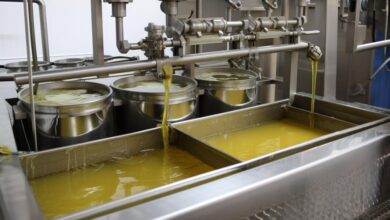National Foods Limited Applauds Government’s Efforts to Boost Wheat Production in Zimbabwe

National Foods Limited (NFL) has expressed strong support for the Government’s initiatives aimed at improving wheat production in Zimbabwe, which have significantly reduced the import bill for millers. This progress has been instrumental in ensuring that the country is able to access more locally produced wheat, a move that is benefiting both millers and the agricultural sector.
For years, Zimbabwe has struggled to meet its national wheat requirements, forcing the country to rely heavily on wheat imports. However, with the advent of the Second Republic, the Government has introduced several measures to stimulate wheat production, which has resulted in notable success. In 2023, Zimbabwe harvested an impressive 375,000 tonnes of wheat, the highest ever recorded since wheat farming began in 1966. This milestone not only marks a major achievement for the country but also signals the potential for self-sufficiency in wheat production.
Zimbabwe’s annual wheat consumption stands at around 360,000 tonnes, meaning the country is now producing more than enough wheat to meet its needs. This reduction in dependence on imports is a significant step toward improving the nation’s food security and reducing the strain on foreign currency reserves.
In a recent interview during the tour of NFL’s new flour milling plant in Bulawayo, the company’s Southern Region Production Executive, Mr. Ngqabutho Moyo, commended the Government’s role in facilitating the growth of local wheat production. Mr. Moyo explained that the improved production has made wheat sourcing easier for millers, with many now able to access the grain from the Grain Marketing Board (GMB) more efficiently.
“With this improved wheat production in the country, it’s now easier to get wheat from the GMB. The improvement in production makes things easier for millers as it makes logistics a lot more manageable,” said Mr. Moyo.
NFL is also involved in an outgrower scheme, which plays a crucial role in reducing the import bill by sourcing locally grown wheat. The company is set to receive about 60,000 tonnes of wheat this year through its contract farming scheme, known as PHI. In addition, NFL supplements its local wheat supply with imports, adhering to the country’s 70–30 policy, where 30% of the wheat is sourced internationally.
The Government’s initiatives to boost wheat production include support for private contractors, the National Enhanced Agricultural Productivity Scheme (NEAPS), and the Presidential Wheat Support Scheme. These efforts, coupled with reliable irrigation and a stable power supply, have played a pivotal role in enabling Zimbabwe to achieve such impressive results.
The Ministry of Lands, Agriculture, Fisheries, Water, and Rural Development reports that an assessment of 151 major dams across the country shows that the available water is sufficient to irrigate 120,000 hectares of wheat, which would meet the season’s ambitious target of 600,000 tonnes. If achieved, this surplus wheat production would not only reduce reliance on imports but also open doors for new export opportunities, further boosting Zimbabwe’s agricultural sector.
In addition to these developments, NFL has recently invested US$6.5 million in a state-of-the-art flour milling plant in Bulawayo, which boasts the capacity to mill 300 tonnes of wheat per day. This new plant represents a significant commitment to the local economy and the company’s role in supporting the national wheat industry.
With continued efforts from both the Government and private sector players like National Foods, Zimbabwe’s wheat production is set to flourish, bringing the country closer to self-sufficiency and opening new pathways for economic growth.




